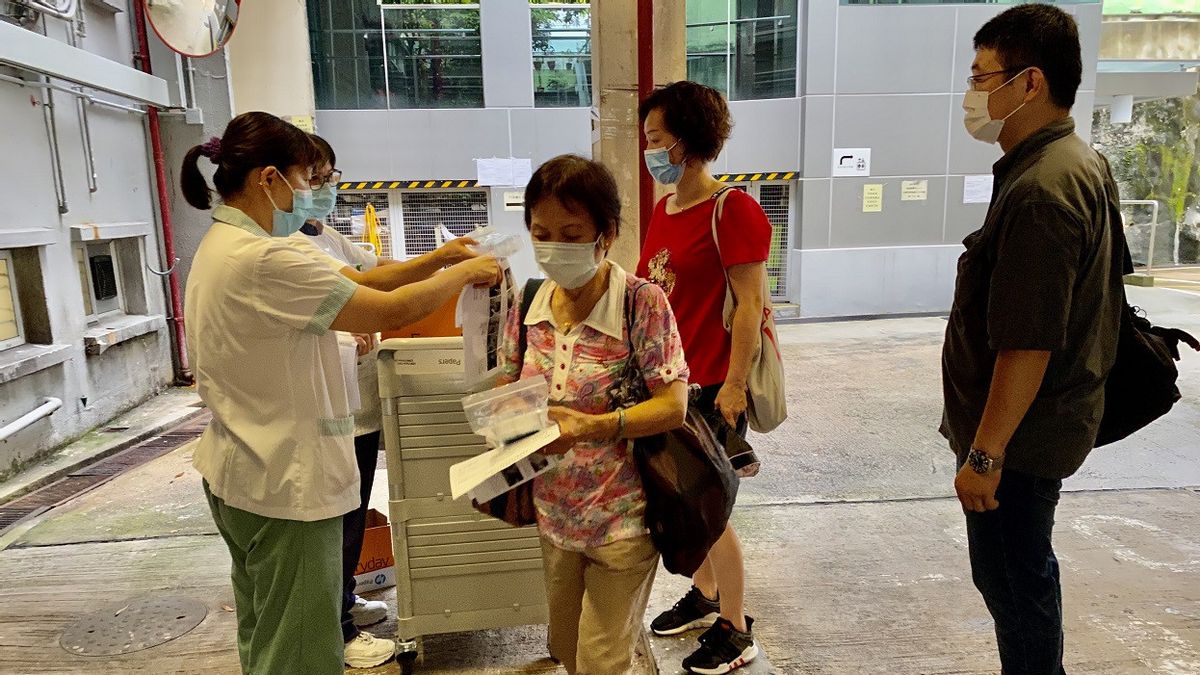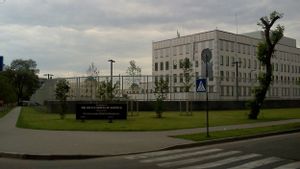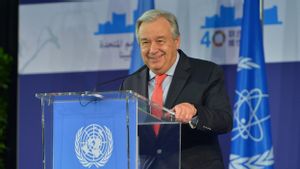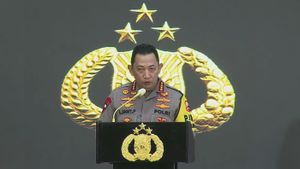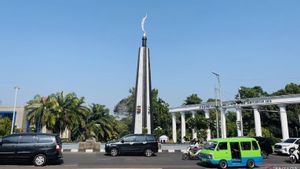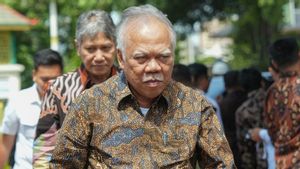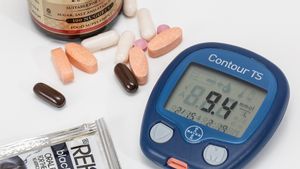JAKARTA - Hong Kong leader Carrie Lam on Tuesday ruled out a city-wide lockdown to combat COVID-19, although a spike in infections is likely to affect the chief executive election next month.
Carrie Lam, who has not confirmed whether she will seek another five-year term as head of the Chinese-ruled city, said her government's response to the outbreak was unsatisfactory, with hospitals and medical staff overwhelmed.
While Hong Kong's daily infection cases have jumped about 20 times over the past two weeks, Lam said authorities were unable to keep up with their testing and isolation mandates.
"There are no plans for widespread city lockdowns," she said but doubled down on his 'zero dynamic' coronavirus strategy, similar to mainland China seeking to curb the outbreak as soon as it occurs.
"We can't give in to the virus. This is not an option," said Carrie Lam.
Hong Kong is expected to report at least 1.501 new infections on Tuesday, with another 5.400 initial positive cases, broadcaster TVB said, citing unnamed sources.
Meanwhile, health authorities reported a record 2.071 infections on Monday, with another 4.500 initial positive cases.
Asked if the city's chief executive election, set for March 27, would go ahead, Lam said her plans had not changed, but given the 'severity and speed of this latest wave' the situation would continue to be reviewed.
"So I can't rule out anything at this point," she said.

A committee of 1.500 members, all vetted by the authorities for their "patriotism" and loyalty to Beijing, participated in selecting the next leader. The chief executive election has not been postponed since the city's handover from Britain to China in 1997.
Two years ago, authorities cited the coronavirus for postponing legislative elections, in which some seats were determined by public vote. The elections will be held in December 2021 under new 'patriots only' rules imposed by Beijing.
Restrictions on social and public gatherings, imposed after the pandemic first hit, helped Hong Kong authorities stifle the pro-democracy movement whose mass protests have rocked the city in 2019. The National Security Act enacted by Beijing in June 2020 effectively ended the unrest.
In addition, international travel has been severely hampered due to strict flight restrictions, having turned Hong Kong into one of the most isolated major cities in the world, with its borders effectively sealed for about two years.
Most venues from churches, pubs, schools, and gyms remain closed while public gatherings of more than two people are prohibited. Dining in restaurants is not allowed after 18:00, while most people work from home.
BACA JUGA:
The plan is that Hong Kong will introduce a vaccine permit from February 24 in which residents must show proof of vaccination before entering restaurants, supermarkets, and shopping malls.
The total caseload of COVID-19 infections in Hong Kong since the pandemic first erupted is around 25,000 infections, including slightly more than 200 deaths. But, with the health care system already overwhelmed, medical experts warn the city could see 28.000 daily infections by the end of March, and there are concerns about large numbers of older people hesitating to get vaccinated.
Anticipating the need for more isolation facilities, Lam said about 3.000 public housing units and about 10.000 hotel rooms would be converted.
The English, Chinese, Japanese, Arabic, and French versions are automatically generated by the AI. So there may still be inaccuracies in translating, please always see Indonesian as our main language. (system supported by DigitalSiber.id)
